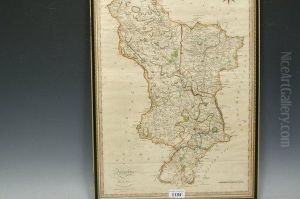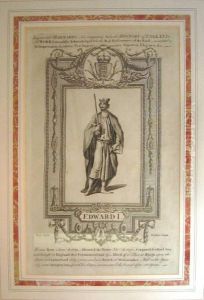John Cary Paintings
John Cary was an English cartographer, engraver, and map seller renowned for his highly detailed and accurate maps, as well as his craftsmanship in globes and scientific instruments. Born in 1754, Cary served an apprenticeship as an engraver before setting up his own business in London. His establishment quickly gained a reputation for the outstanding quality of its products, which combined artistic beauty with scientific precision.
Cary's first significant work, 'Actual Survey of the Country Fifteen Miles around London,' was published in 1786 and set a new standard in cartography with its meticulous detail. He continued to innovate through the use of new surveying techniques and an unwavering commitment to accuracy in his maps. In 1794, he produced the 'New and Correct English Atlas,' which was widely recognized for its clarity and reliability. Cary's commitment to detail was such that he often updated his plates to reflect new discoveries or changes in topography.
Throughout his career, Cary produced a vast array of maps, including road maps, county maps, celestial and terrestrial globes, and atlases. His work was not limited to Britain; he also published maps of European and other countries. One of his most ambitious projects was Cary's 'New Universal Atlas,' published in 1808, which was considered one of the finest atlases of the period.
John Cary's maps were not only tools for navigation and reference but also works of art, characterized by their clean and clear engravings and the absence of the decorative flourishes that were common at the time. This stylistic clarity reflected the Enlightenment's emphasis on rationality and empiricism.
Cary's influence extended well beyond his lifetime, with his maps remaining in use and high regard throughout the 19th century. After his death in 1835, his business was continued by his sons, George and John Jr., who upheld their father's legacy of high-quality cartographic work.

